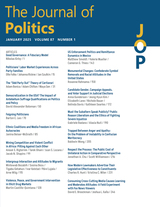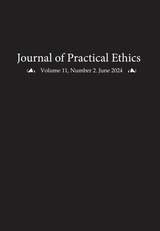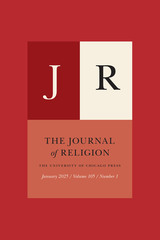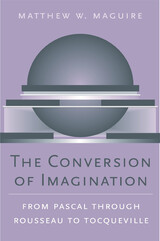
From romanticism through postmodernism, the imagination has become an indispensable reference point for thinking about the self, culture, philosophy, and politics. How has imagination so thoroughly influenced our understanding of experience and its possibilities? In a bold reinterpretation of a crucial development in modern European intellectual history, Matthew W. Maguire uncovers a history of French thought that casts the imagination as a dominant faculty in our experience of the world.
Pascal, turning Augustinianism inside out, radically expanded the powers of imagination implicit in the work of Montaigne and Descartes, and made imagination the determinative faculty of everything from meaning and beauty to political legitimacy and happiness. Maguire traces the ways that others, including Montesquieu and Voltaire, developed and assigned limits to this exalted imagination. But it is above all Rousseau's diverse writings that engage with an expansive imagination. And in the writings of Rousseau's careful readers, particularly Alexis de Tocqueville, imagination is increasingly understood as the medium for an ineffable human freedom against the constrictive power of a new order in politics and culture.
Original and thought-provoking, The Conversion of Imagination will interest a range of readers across intellectual history, political theory, literary and cultural studies, and the history of religious thought.

"Several books a year wrestle with that hoary conundrum, but few so dazzlingly as the Polish philosopher's latest."—Carlin Romano, Washington Post Book World
"Kolakowski's fascinating book and its debatable thesis raise intriguing historical and theological questions well worth pursuing."—Stephen J. Duffy, Theological Studies
"Kolakowski's elegant meditation is a masterpiece of cultural and religious criticism."—Henry Carrigan, Cleveland Plain Dealer
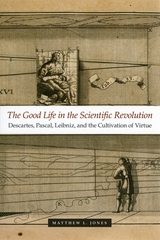
Amid the unrest, dislocation, and uncertainty of seventeenth-century Europe, readers seeking consolation and assurance turned to philosophical and scientific books that offered ways of conquering fears and training the mind—guidance for living a good life.
The Good Life in the Scientific Revolution presents a triptych showing how three key early modern scientists, René Descartes, Blaise Pascal, and Gottfried Leibniz, envisioned their new work as useful for cultivating virtue and for pursuing a good life. Their scientific and philosophical innovations stemmed in part from their understanding of mathematics and science as cognitive and spiritual exercises that could create a truer mental and spiritual nobility. In portraying the rich contexts surrounding Descartes’ geometry, Pascal’s arithmetical triangle, and Leibniz’s calculus, Matthew L. Jones argues that this drive for moral therapeutics guided important developments of early modern philosophy and the Scientific Revolution.

The life of the paradoxical seventeenth-century philosopher and mathematician is examined here along three axes—psychological, theological, and linguistic—to present the first rounded portrayal of the querulous, intense, ever-committed Pascal. In drawing this portrait, the author restores Pascal to the general reader after twenty years of scholarship that has embroiled this historic thinker in academic quarrels.
Robert Nelson confronts the contradictions in Pascal’s life and personality: intensely religious according to the demands of his time, yet simultaneously committed to rigorous scientific inquiry, no matter where it led; fascinated by rebellion, yet deeply dependent on the authority of father, spiritual adviser, church, and science. Mr. Nelson sees the resolution of these personal dilemmas in Pascal’s growing interest in language—the essential relation between word and object, signifier and signified, which form a style of “Pascalian linguistics” different from those of Descartes or Port Royal.
Through the scrutiny of Pascal’s biography and analysis of the entire body of his writing, Nelson reveals Pascal the man, the scientist, the theologian, and the literary genius.

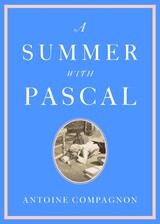
From an eminent scholar, a spirited introduction to one of the great polymaths in the history of Europe.
Blaise Pascal (1623–1662) is best known in the English-speaking world for his contributions to mathematics and physics, with both a triangle and a law in fluid mechanics named after him. Meanwhile, the classic film My Night at Maud’s popularized Pascal’s wager, an invitation to faith that has inspired generations of theologians. Despite the immensity of his reputation, few read him outside French schools. In A Summer with Pascal, celebrated literary critic Antoine Compagnon opens our minds to a figure somehow both towering and ignored.
Compagnon provides a bird’s-eye view of Pascal’s life and significance, making this volume an ideal introduction. Still, scholars and neophytes alike will profit greatly from his masterful readings of the Pensées—a cornerstone of Western philosophy—and the Provincial Letters, in which Pascal advanced wry theological critiques of his contemporaries. The concise, taut chapters build upon one another, easing into writings often thought to be forbidding and dour. With Compagnon as our guide, these works are not just accessible but enchanting.
A Summer with Pascal brings the early modern thinker to life in the present. In an age of profound existential doubt and assaults on truth and reason, in which religion and science are so often crudely opposed, Pascal’s sophisticated commitment to both challenges us to meet the world with true intellectual vigor.
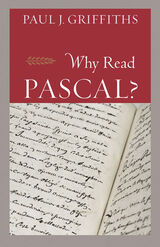

READERS
Browse our collection.
PUBLISHERS
See BiblioVault's publisher services.
STUDENT SERVICES
Files for college accessibility offices.
UChicago Accessibility Resources
home | accessibility | search | about | contact us
BiblioVault ® 2001 - 2025
The University of Chicago Press


